1997 in the United Kingdom
Events from the year 1997 in the United Kingdom. This year is noted for a landslide general election victory for the Labour Party under Tony Blair; the transfer of Hong Kong, the largest remaining British colony, to China; and the death of Diana, Princess of Wales.
| 1997 in the United Kingdom |
| Other years |
| 1995 | 1996 | 1997 | 1998 | 1999 |
| Constituent countries of the United Kingdom |
| England | Northern Ireland | Scotland | Wales |
| Popular culture |
Incumbents
- Monarch – Elizabeth II
- Prime Minister
- John Major (Conservative) (until 2 May)
- Tony Blair (Labour) (starting 2 May)
- Parliament
Events
January
- 6 January – Allegations of a Tory MP's extramarital affair appear in the News of the World newspaper a week after Conservative Prime Minister John Major put "the family" at the heart of his campaign. Jerry Hayes - married with two children - denied the allegations.
- 7 January – 2.5 million people take part in a phone-in vote as part of an ITV debate on the British monarchy. A 2-1 majority vote in favour of retaining the institution.
- 8 January – British boss of Virgin Richard Branson had a lucky escape when his attempt to fly around the world by balloon ended after just 20 hours. The Virgin Challenger carrying Branson and two other men came down in the Algerian desert.
- 9 January – British yachtsman Tony Bullimore is rescued in the Southern Ocean five days after his boat capsized in freezing waters, the Queen commends his bravery.
- 15 January
- Diana, Princess of Wales calls for an international ban on landmines.[1]
- The strengthening economy is reflected in a national unemployment total of 1,884,700 for last December – the lowest level since January 1991. The Conservative government who are mired in allegations of sleaze are still behind Labour in the opinion polls as the general election looms.
- 16 January
- The Conservative Party government loses its majority in the House of Commons after the death of Iain Mills, MP for Meriden.[2]
- Chris Evans resigns from BBC Radio 1 after his request for a four-day week is refused. Since joining the station as a breakfast-time DJ in 1995 Evans had boosted audience numbers by 700,000.
- 17 January
- A jury at the Old Bailey rules that 86-year-old Szymon Serafinowicz is unfit to stand trial on charges of murdering Jews during the Holocaust.
- East 17 singer Brian Harvey is dismissed from the band after publicly commenting that the drug Ecstasy is safe.
- 20 January – Death of Labour Party MP Martin Redmond ends the government's minority.[2] On the same day, the party vows not to raise income tax if, as seems likely, it wins the forthcoming general election.[3]
- 30 January – An underground anti-road protest ended as the last protester known as "Swampy" (Daniel Hooper) emerged from the network of tunnels beneath the A30 extension site in Devon.
February
- 4 February – Moors Murderer Myra Hindley is informed by Home Secretary Michael Howard that she will never be released from prison. Hindley, who has now been in prison for more than 30 years, was originally issued with a whole life tariff by the then Home Secretary David Waddington in 1990, but not informed of the ruling until just over two years ago.
- 6 February – The Court of Appeal rules that Mrs Diane Blood of Leeds can be inseminated with her dead husband's sperm. Mrs Blood had been challenging for the right to use the sperm of her husband Stephen since just after his death two years ago.[4]
- 12 February – A 23 year old British soldier is shot dead in Northern Ireland. Lance Bombardier Stephen Restorick was shot by a sniper while manning a checkpoint in Bessbrook (County Armagh), he is the last British soldier to be killed by the Provisional IRA.
- 14 February – The Daily Mail newspaper accused five young men of the murder of Stephen Lawrence on its front page the day after a coroner's inquest found that the teenager had been unlawfully killed in an unprovoked racist attack by five white youths in April 1993.
- 22 February – Scientists at the Roslin Institute announce the birth of a cloned sheep named Dolly seven months after the fact.[5]
- 27 February – The government loses its Commons majority again after the Labour victory at the Wirral South by-election.[2]
March
- 10 March – 160 vehicles are involved in a motorway pile up on the M42 motorway at Bromsgrove, Worcestershire. Three people are killed and 60 injured.
- 17 March – John Major announces that the general election will be held on 1 May. Despite the opinion polls having shown a double digit Labour lead almost continuously since late 1992, Major is hoping for a unique fifth successive term of Conservative government by pinning his hopes on a strong economy and low unemployment – no incoming government since before the First World War has inherited economic statistics as strong as the ones that Labour will should they win the election.
- 18 March – The Sun newspaper, a traditional supporter of the Conservative Party, declares its support for Tony Blair and Labour. It condemns the Conservatives as "tired, divided and rudderless" – a stark contrast to its support for them in the run-up to the 1992 election where it waged a high-profile campaign against the then Labour leader Neil Kinnock and, after the Conservative victory, claimed responsibility for the result.
- 23 March – Unemployed continues to fall and now stands at just over 1,800,000 – its lowest level since December 1990.
- 30 March – Channel 5, Britain's fifth terrestrial television channel and its first new one since the launch of Channel 4 in November 1982, is launched.
- 31 March – BBC pre-school children's television series Teletubbies first airs.
April
- April – Nursery Education Voucher Scheme introduced, guaranteeing a government-funded contribution to the cost of preschool education for 4-year-olds.
- 8 April
- BBC journalist Martin Bell announces that he is to stand as a candidate against Neil Hamilton in the Tatton constituency on an anti-corruption platform.[6]
- A MORI opinion poll shows Conservative support at a four-year high of 34%, but Labour still look set to win next month's general election as they have a 15-point lead.[7]
- 29 April – The last MORI poll before the election tips Labour for a landslide victory as they gain 48% of the vote and a 20-point lead over the Conservatives.[8]
May
- 1 May – General election:[9]
- The Labour Party under Tony Blair defeat the incumbent Conservatives under Prime Minister John Major to win the election in a landslide result, winning 418 seats.
- Several high-profile Conservative MPs, including seven Cabinet ministers lose their seats, as do all Conservative MPs in Scotland and Wales. Michael Portillo, who was tipped by many to be the next leader of the Conservatives, is among those who lose their seats.
- The Conservatives fail to make any gains.
- A record 119 women are now in parliament.
- Mohammad Sarwar, elected for Labour in Glasgow Govan, becomes the first ever Muslim MP.
- 2 May – Being the leader of the party holding a majority after the general election, Tony Blair MP is appointed Prime Minister of the United Kingdom by the Queen.
- 3 May – Katrina and the Waves win the Eurovision Song Contest with the song Love Shine a Light, the first time the UK has won the competition since 1981.
- 6 May – New Chancellor of the Exchequer, Gordon Brown announces that the Bank of England, central bank of the UK, is to assume independent responsibility for UK monetary policy.[10]
- 19 May – The new Labour government announces that it will ban tobacco sponsorship of sporting events.[11]
June
- June – Ford enters the growing compact coupe market with its Puma, which uses the same chassis as the Ka and Fiesta.
- 2 June – The Halifax Building Society floats on the London Stock Exchange. Over 7.5 million customers of the Society become shareholders of the new bank, the largest extension of shareholders in UK history.
- 12 June – Law Lords declare that former Home Secretary, Michael Howard, acted illegally in raising the minimum sentence of the two juveniles who committed the murder of James Bulger, Robert Thompson and Jon Venables, to 15 years. They also strip the government of setting minimum terms for prisoners aged under 18 who had received life or indefinite prison sentences.[12]
- 19 June – The High Court of Justice delivers judgement, largely in favour of McDonald's, in the libel case of McDonald's Corporation v Steel & Morris ("the McLibel case"), the longest trial in English legal history, against two environmental campaigners.[13]
- 25 June – An auction of dresses owned by Diana, Princess of Wales, in Manhattan raises more than £2million for charity.
- 26 June – Publication of J. K. Rowling's first Harry Potter novel, Harry Potter and the Philosopher's Stone.
July
- 1 July – The UK transfers sovereignty of Hong Kong, the largest remaining British colony, to the People's Republic of China as the 99 years lease on the territory formally ends.[14] This event is widely considered by historians and commentators to mark the end of the British Empire, the largest imperial endeavour in the history of mankind.[15]
- 2 July – Chancellor Gordon Brown launches the first Labour budget for nearly 20 years, which includes a further £3billion for education and healthcare, as well as a £3.5billion scheme to get single mothers, under 25's and long term unemployed people back into work.
- 4 July – Russian carmaker Lada announces the end of imports to the United Kingdom after 23 years and some 350,000 sales of its low-priced, low-specification cars, which at their peak sold in excess of 30,000 cars a year, but managed just over 6,000 sales last year.
- 6–11 July – 1997 nationalist riots in Northern Ireland: there is violence in nationalist areas after an Orange Order parade is allowed down the Garvaghy Road in Portadown by the Royal Ulster Constabulary as part of the Drumcree conflict.
- 19 July – The IRA declares a ceasefire.[16]
- 30 July – Sunderland's Stadium of Light, the largest football club stadium to be built in England since the 1920s, is opened by the Duke of York.[17]
- 31 July – At the Uxbridge by-election, John Randall holds the seat for the Conservatives.[18]
August
- 2 August – John Major's Prime Minister's Resignation Honours are announced.[19]
- 14 August – Derby County F.C. move into their new Pride Park stadium, but their inaugural match against Wimbledon in the FA Premier League is abandoned in the second half due to floodlight failure.[20]
- 21 August – The new Oasis album, Be Here Now, is released – selling a record of more than 350,000 copies on its first day.
- 27 August –
- An international survey shows that British rail fares are the most expensive in the world and have risen by 12% since privatisation.
- Stoke City F.C. move into their new Britannia Stadium, which is officially opened by football legend Sir Stanley Matthews.[21]
- 31 August – Reports emerge in the early hours of the morning that Diana, Princess of Wales, has been injured in a car crash in Paris which has claimed the life of Dodi Fayed, the Harrods heir. Within four hours, it is confirmed that Diana has died in hospital as a result of her injuries. The United Kingdom and much of the rest of the world is plunged into widespread mourning.[22]
September

The funeral cortege of Diana, Princess of Wales
- 1 September
- French investigators reveal that Diana's driver, Henri Paul, was over the drink-driving limit and had been travelling at speeds in excess of 100 mph before the crash that killed her. Lawyers for Mohamed Al-Fayed, father of Dodi Al-Fayed, lay the blame on the paparazzi who were pursuing the vehicle.[23]
- A new style of fifty pence coin is introduced.[24]
- Reebok Stadium, the new home of Bolton Wanderers F.C., is opened by deputy Prime Minister John Prescott.[25]
- 5 September – The Queen makes a nationwide broadcast in tribute to Diana, Princess of Wales, following widespread criticism of the Royal Family's response to her death.
- 6 September – The funeral of Diana, Princess of Wales takes place at Westminster Abbey, London followed by a private burial at the estate of the Earls Spencer in Althorp, Northamptonshire. The Earl Spencer, brother of Diana, attacks the Royal Family's and the media's treatment of Diana in his funeral eulogy. TV coverage of the funeral is hosted by both BBC 1 and ITV, attracting an audience of more than 32,000,000 which falls just short of the national TV audience record set by the England national football team's victorious World Cup final in 1966.[26]
- 7 September – Clyde Auditorium in Glasgow (the "armadillo"), designed by Foster and Partners, is completed.
- 11 September – Referendum in Scotland on the creation of a national Parliament with devolved powers takes place. On two separate questions, voters back the plans both for a national Parliament and for it to have limited tax raising powers.[27]
- 13 September – Release of Elton John's Candle in the Wind remade as a tribute to Diana, Princess of Wales. This will be the second best-selling single worldwide of all time.[28]
- 17 September – Police investigating the death of Diana, Princess of Wales reveal that the car in which she was travelling may have collided with a Fiat Uno seconds before hitting a concrete pillar.
- 18 September
- Welsh devolution referendum on the creation of a national Assembly takes place. Voters in Wales narrowly back the plans.[14]
- Opening of Sensation exhibition of Young British Artists from the collection of Charles Saatchi at the Royal Academy in London. A portrait of Moors murderer Myra Hindley created from children's handprints by artist Marcus Harvey is removed from display after vandal attacks.
- 19 September - Seven die and 139 are injured in the Southall rail crash when a Passenger train passes a Danger signal and collides with a Freight train.
- 25 September – A Saudi court sentences British nurse Lucille McLauchlan to eight years in prison and 500 lashes for being an accessory to the murder of Australian nurse Yvonne Gilford in December the previous year. Fellow British nurse Deborah Parry is charged with murder and could face the death penalty if found guilty. Ms Gilford's brother Frank, is reported to be willing to accept £750,000 in "blood money" for Ms Parry's life to be spared if she is found guilty. Foreign Secretary Robin Cook condemns the sentence of flogging against Ms McLauchlan as "wholly unacceptable in the modern world".
- 29 September – British scientists state that they have found a link between Creutzfeldt–Jakob disease and eating of BSE-infected meat.[29]
October
- 1 October – The final LTI FX4 London cab is produced after 39 years.
- 4 October – The BBC introduces its new corporate logo across the corporation, as well as new idents for BBC1.
- 15 October – Andy Green driving the ThrustSSC sets a new land speed record of 763.035 mph (1227.99 km/h), the first time the sound barrier is broken on land.[14]
- 24 October – WPC Nina Mackay, 25, is stabbed to death in Stratford, London, when entering a flat to arrest a Somali asylum seeker who was due to be deported.
November
- 4 November – BBC News launches a full-time online news service, having already created special websites for the 1995 budget as well as this year's general election and the death of Diana, Princess of Wales.[30]
- 6 November – Labour hold the Paisley South by-election despite a swing of 11.3% to the SNP.
- 12 November – Brazil's Supreme Court refuses to extradite the Great Train Robber Ronnie Biggs to Britain.[31]
- 17 November – Six Britons are among the 58 people killed by terrorists in the Valley of the Kings, Egypt.
- 20 November
- The Queen and The Duke of Edinburgh celebrate their 50th wedding anniversary.
- At the Winchester by-election, Mark Oaten holds the seat for the Liberal Democrats.[18]
- 24 November – The British Library opens its first public reading room at its new London site on the Euston Road.
December
- 3 December – Andrew Evans, who was convicted of the 1972 murder of 14-year-old Judith Roberts in Tamworth, Staffordshire, has his conviction overturned by the Court of Appeal after the hearing is told he was being treated for depression when he confessed to the crime, and there is no other evidence against him.[32]
- 10 December – John E. Walker wins the Nobel Prize in Chemistry jointly with Paul D. Boyer "for their elucidation of the enzymatic mechanism underlying the synthesis of adenosine triphosphate (ATP)".[33]
- 11 December – The Royal Yacht Britannia is decommissioned after 44 years in service.
- 18 December – The bill to establish the Scottish Parliament unveiled by Secretary of State for Scotland Donald Dewar.[34]
- 19 December
- William Hague marries Ffion Jenkins.[35]
- Moors murderer Myra Hindley loses a High Court appeal against the whole life tariff which was imposed on her by Home Secretary David Waddington in 1990 and later confirmed by Waddington's successor Michael Howard.
- 22 December
- The government announces an independent inquiry into the BSE crisis.[36]
- Twelve people are arrested during protests by disabled people outside Downing Street.
- 23 December – Rover Group produces the final Rover 100 after 17 years.
- 24 December – Will Straw, son of Cabinet minister Jack Straw, is arrested on suspicion of supplying cannabis.[37]
- 27 December – Ulster Loyalist leader Billy Wright is shot dead in the Maze Prison. Prisoners of the Irish National Liberation Army are believed to have been responsible for Wright's murder.[38]
- 31 December – Singer Elton John and football legend Tom Finney are among the men receiving knighthoods in the New Year's Honours List.
Undated
- The Weare prison ship is berthed in Portland Harbour as a temporary overflow facility.
Publications
- Iain Banks' novel A Song of Stone.
- Ted Hughes' poetry Tales from Ovid.
- Ian McEwan's novel Enduring Love.
- Terry Pratchett's Discworld novel Jingo.
- Philip Pullman's novel The Subtle Knife.
- J. K. Rowling's novel Harry Potter and the Philosopher's Stone.
Births
- 3 January
- Thomas Byrne, actor
- Joe Morrell, footballer
- Jordan Thompson, footballer
- 7 January
- Izzy Brown, footballer
- Kyle Stanger, actor
- 8 January - Jack Simpson, footballer
- 11 January – Demetri Mitchell, footballer
- 10 January – Thomas Lewis Humphrey, judoka
- 23 January
- Sophie Hahn, athlete
- Shaheen Jafargholi, actor and singer
- Giorgio Rasulo, footballer
- 2 February
- Ellie Bamber, actress
- Cameron Borthwick-Jackson, footballer
- Gabrielle George, footballer
- 3 February – Lewis Cook, footballer
- 5 February – Patrick Roberts, footballer
- 8 February – Venus Angelic, singer and vlogger
- 10 February
- Adam Armstrong, footballer
- Lauren Mote, actress
- 12 February - Connor Mahoney, footballer
- 16 February – Charlie Green, singer
- 17 February – Josef Craig, Paralympic swimmer
- 18 February – Bradley Collins, footballer
- 21 February – Arwel Robson, rugby union player
- 23 February – Luke Amos, footballer
- 4 March – Freddie Woodman, footballer
- 12 March – Dean Henderson, footballer
- 14 March – Brad Taylor, cricketer
- 15 March – Jonjoe Kenny, footballer
- 22 March – Harry Wilson, footballer
- 23 March – Aidan Davis, dancer
- 24 March – George Thomas, footballer
- 29 March – Leah Williamson, footballer
- 1 April
- Asa Butterfield, actor
- Cian Harries, footballer
- Olivia Smart, ice dancer
- 3 April – Mitchell Rao, cricketer
- 7 April – Laura van der Heijden, cellist
- 8 April – Keira Walsh, footballer
- 11 April – Tully Kearney, swimmer
- 13 April – Kyle Walker-Peters, footballer
- 15 April – Maisie Williams, actress
- 16 May – Cloe and Holly Mackie, actresses
- 23 May – Joe Gomez, footballer
- 25 May - Sophie Walsh, Kodak baby of the year, 1997
- 11 June – Jorja Smith, singer
- 12 June – Gabrielle Jupp, artistic gymnast
- 19 June
- Sheyi Ojo, footballer
- Molly Windsor, actress
- 28 June – Connor Edwards, rugby union player
- 3 July – Mia McKenna-Bruce, actress
- 8 July – David Brooks, footballer
- 13 July – Shayon Harrison, footballer
- 4 August – Mollie Green, footballer
- 5 August – Clara van Wel, singer-songwriter
- 16 August – Tilly Keeper, actress
- 24 August – Alan Walker, English-Norwegian music producer and DJ
- 25 August – Holly Gibbs, actor
- 29 August – Ainsley Maitland-Niles, footballer
- 30 August – Dael Fry, footballer
- 10 September – Paul Smyth, footballer
- 14 September – Dominic Solanke, footballer
- 16 September
- Amy-Leigh Hickman, actress
- Oscar Lloyd, actor
- 22 September – Jake Clarke-Salter, footballer
- 23 September
- Callum Connolly, footballer
- George Panayi, cricketer
- 24 September – Tosin Adarabioyo, footballer
- 28 September – Ben Green, cricketer
- 1 October
- Aimee Challenor, politician and transgender activist[39]
- Hamza Choudhury, footballer
- 2 October – Tammy Abraham, footballer
- 10 October – Kieran Dowell, footballer
- 20 October – John Bell, Scottish actor
- 22 October – Joe Rodon, footballer
- 23 October
- Tallulah Greive, Australian-born Scottish actress
- Ezri Konsa, footballer
- 24 October – Claudia Fragapane, gymnast
- 26 October – Ryan Patel, cricketer
- 27 October
- Jessica Carter, footballer
- Eden Taylor-Draper, actor
- 31 October – Marcus Rashford, footballer
- 5 November – Chris Mepham, footballer
- 6 November – Hero Fiennes-Tiffin, actor
- 9 November – Matthew Fisher, cricketer
- 10 November – Daniel James, footballer
- 14 November – Axel Tuanzebe, footballer
- 15 November
- Catie Munnings, rally driver
- Josh Tongue, cricketer
- 18 November – Ovie Ejaria, footballer
- 3 December – Hayley Okines, activist
- 9 December – Harvey Barnes, footballer
- 18 December – Max Holden, cricketer
- 19 December – Fikayo Timor, footballer
Full date unknown
- Michael-Joel David Stuart, actor
Deaths
- 1 January – Graham Kersey, cricketer (born 1971); died in a car crash
- 10 January – Alexander R. Todd, Baron Todd, biochemist (born 1907)
- 13 January – Iain Mills, Member of Parliament (born 1940)
- 16 January – Martin Redmond, Member of Parliament (born 1937)
- 20 January – Dennis Main Wilson, broadcast producer (born 1924)
- 9 February – Barry Evans, actor (born 1943)
- 6 March – Ursula Torday, British writer (b. 1912)
- 21 March – Rev. W. V. Awdry, children's writer (born 1911)
- 1 April – Norman Carr, English environmentalist and author (born 1912)
- 22 April
- Reg Gammon, English painter and illustrator (b. 1894)
- Baroness Seear, British politician (b. 1913)
- 23 April – Denis Compton, footballer and cricketer (born 1918)
- 13 May – Laurie Lee, poet and author (born 1914)
- 20 May – Gavin Hills, journalist (born 1966)
- 30 June – Dame Sylvia Crowe, landscape architect (born 1901)
- 4 July – John Zachary Young, biologist (born 1907)
- 7 July – Royston Tickner, English actor (b. 1922)
- 10 July – Ivor Allchurch, former footballer (born 1929)
- 18 July – Sir James Goldsmith, financier and politician, founder of the Referendum Party (born 1933)
- 24 July – Brian Glover, actor (born 1934)
- 29 July – Jack Archer, former sprinter (born 1921)
- 23 August – John Kendrew, molecular biologist, recipient of the Nobel Prize in Chemistry (born 1917)
- 24 August – Louis Essen, physicist (born 1908)
- 31 August
- Dodi Fayed, Egyptian film producer and heir to Harrods department store (born 1955); died in Paris car crash
- Diana, Princess of Wales (born 1961); died in hospital after being seriously injured in the same crash
- 6 September – P. H. Newby, novelist (born 1918)
- 17 September – Brian Hall, actor (born 1937)
- 19 September – Jack May, actor (born 1922)
- 3 October – A. L. Rowse, historian (born 1903)
- 6 October – Adrienne Hill, actress (born 1937)
- 13 October – Richard Mason, British novelist (b. 1919)
- 18 November – Joyce Wethered, Lady Heathcoat-Amory, golfer (born 1901)
- 2 December – Shirley Crabtree, "Big Daddy", wrestler (born 1930)
- 4 December – Richard Vernon, actor (born 1925)
- 7 December – Billy Bremner, footballer and football manager (born 1942)
- 27 December – Billy Wright, Northern Irish loyalist leader (born 1960); murdered in prison
See also
References
- "Princess Diana sparks landmines row". BBC News. 15 January 1997. Archived from the original on 7 March 2008. Retrieved 10 February 2008.
- "How the Government's Majority Disappeared, BBC". Retrieved 26 September 2007.
- British Election Panel Study, 1992-97
- "Widow allowed dead husband's baby". BBC News. 6 February 1997. Archived from the original on 8 February 2008. Retrieved 10 February 2008.
- "Dolly the sheep is cloned". BBC News. 22 February 1997. Archived from the original on 7 March 2008. Retrieved 10 February 2008.
- "BBC TV newsman turns politician". BBC News. 8 April 1997. Archived from the original on 7 March 2008. Retrieved 10 February 2008.
- "Voting Intention in Great Britain: 1976-present". Ipsos. Archived from the original on 21 February 2011.
- "Poll tracker: Interactive guide to the opinion polls". Election 2010. BBC News.
- "Labour routs Tories in historic election". BBC News. 2 May 1997. Archived from the original on 7 March 2008. Retrieved 10 February 2008.
- "Brown sets Bank of England free". BBC News. 6 May 1997. Archived from the original on 7 March 2008. Retrieved 10 February 2008.
- "Labour to stub out tobacco sponsorship". BBC News. 19 May 1997. Archived from the original on 7 March 2008. Retrieved 10 February 2008.
- "Straw to reconsider Bulger killers' fate". BBC News. 12 June 1997. Archived from the original on 7 March 2008. Retrieved 10 February 2008.
- "Victory for McDonald's – at a cost". BBC News. 19 June 1997. Archived from the original on 7 March 2008. Retrieved 10 February 2008.
- Penguin Pocket on This Day. Penguin Reference Library. 2006. ISBN 0-14-102715-0.
- Common knowledge
- "IRA declares ceasefire". BBC News. 19 July 1997. Archived from the original on 7 March 2008. Retrieved 10 February 2008.
- http://www.safc.com/page/FAQs
- "Factsheet M16: By-election results, 1997–2001" (PDF). House of Commons Information Office. September 2003. Retrieved 10 January 2020.
- "No. 54850". The London Gazette (Supplement). 2 August 1997. pp. 8911–8914.
"No. 54851". The London Gazette (Supplement). 2 August 1997. pp. 8909–8910. - "Three matches in floodlight probe". BBC News. 12 February 1999.
- "Archived copy". Archived from the original on 3 January 2012. Retrieved 10 June 2012.CS1 maint: archived copy as title (link)
- "Princess Diana dies in Paris crash". BBC News. 31 August 1997. Archived from the original on 24 January 2008. Retrieved 10 February 2008.
- "Diana driver was 'drunk and speeding'". BBC News. 1 September 1997. Archived from the original on 13 February 2008. Retrieved 10 February 2008.
- "Royal Mint, 50 p Coin Design". Archived from the original on 21 January 2008. Retrieved 10 February 2008.
- "Archived copy". Archived from the original on 17 June 2012. Retrieved 10 June 2012.CS1 maint: archived copy as title (link)
- "Diana's funeral watched by millions". BBC News. 6 September 1997. Archived from the original on 7 March 2008. Retrieved 10 February 2008.
- "Scots say 'Yes' to home rule". BBC News. 12 September 1997. Archived from the original on 7 March 2008. Retrieved 10 February 2008.
- Guinness World Records (PDF). 2007. p. 187. Archived from the original (PDF) on 19 March 2015. Retrieved 3 March 2011. White Christmas was the first.
- "Scientists confirm brain diseases link". BBC News. 29 September 1997. Archived from the original on 7 March 2008. Retrieved 10 February 2008.
- "1950: Television crosses the Channel". BBC News. 27 August 1950. Archived from the original on 30 August 2010. Retrieved 28 September 2010.
- "'Great Train Robber' escapes extradition again". BBC News. 12 November 1997. Archived from the original on 7 March 2008. Retrieved 10 February 2008.
- "Murder conviction quashed after 25 years". BBC News. BBC. 3 December 1997. Retrieved 22 September 2012.
- "The Nobel Prize in Chemistry 1997". Retrieved 10 February 2008.
- "Dawn of Scottish parliament". BBC News. 18 December 1997. Archived from the original on 7 March 2008. Retrieved 10 February 2008.
- "Tory leader weds". BBC News. 19 December 1997. Archived from the original on 7 March 2008. Retrieved 10 February 2008.
- "BSE inquiry to be 'far-reaching'". BBC News. 22 December 1997. Archived from the original on 7 March 2008. Retrieved 10 February 2008.
- "Minister's son arrested in drug probe". BBC News. 24 December 1997. Archived from the original on 7 March 2008. Retrieved 10 February 2008.
- "1997: Loyalist leader murdered in prison". BBC News. 27 December 1997. Archived from the original on 7 March 2008. Retrieved 10 February 2008.
- https://candidates.democracyclub.org.uk/person/11832/aimee-challenor
External links
This article is issued from Wikipedia. The text is licensed under Creative Commons - Attribution - Sharealike. Additional terms may apply for the media files.
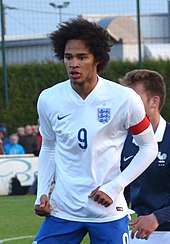
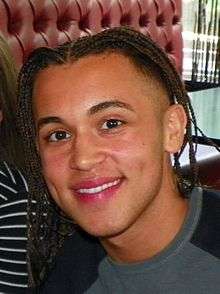

_(cropped).jpg)
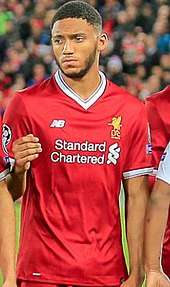
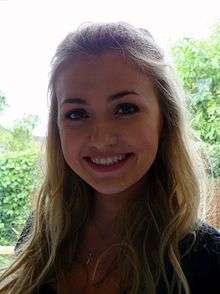
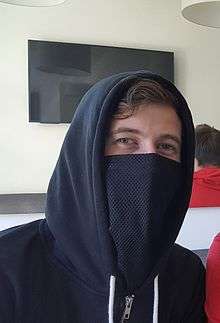

.jpg)
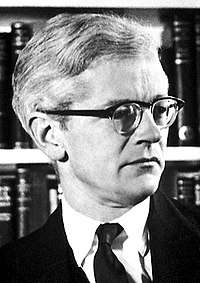
.jpg)